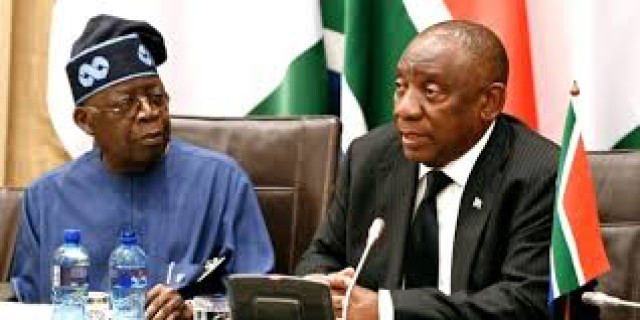SOUTH AFRICA - South Africa has approved a new visa regime that grants Nigerian tourists and businesspeople multiple-entry visas valid for five years in a bid to strengthen bilateral ties and boosting economic cooperation.
The new policy, which includes tourists applying for visas without having to submit their passports, is designed to facilitate seamless travel between both countries.
This announcement was made by South African President Cyril Ramaphosa during the opening of the 11th session of the Nigeria-South Africa Bi-National Commission (BNC) in Cape Town on Tuesday.
Speaking at the event, also attended by President Bola Tinubu, Ramaphosa pledged his country’s commitment to removing constraints on greater investment and addressing the challenges faced by companies in both countries.
“As we mark 30 years since the establishment of diplomatic relations, we see a bright future for our relationship. Our strong bonds of friendship provide a firm foundation for more meaningful economic cooperation,” he said.
Building on his earlier announcement, President Ramaphosa also acknowledged the Nigerian government’s reforms aimed at strengthening the business environment and expressed his hope to see more Nigerian companies investing in South Africa.
“Our government continues with its efforts to improve the ease of doing business in South Africa. We want to enable investors to operate, trade, and pursue opportunities in various sectors. We look forward to seeing more Nigerian companies investing in South Africa,” he added.
Furthermore, the South African leader also highlighted the importance of Africa’s development and the challenges facing countries of the Global South.
To address these issues, he pledged to galvanize support for the African Union’s Agenda 2063 during the G20 Leaders’ Summit, which will be held on African soil for the first time.
“It will be the first time the G20 Leaders’ Summit will be held on African soil. We will seek to galvanize support for the AU’s Agenda 2063 as we pursue an inclusive global agenda. For South Africa, it is our view that in shaping global discourse, programs should be tailored to ensure that in our societies, no one is left behind”.




















